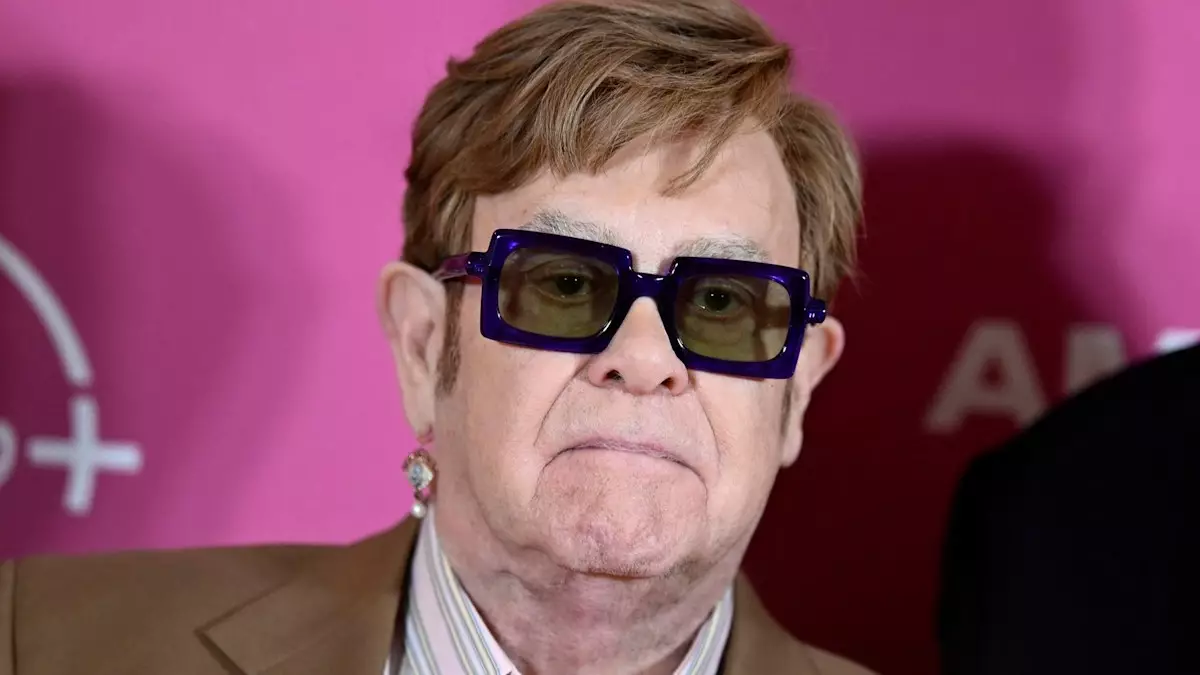In an unexpected revelation, legendary musician Sir Elton John has shared a deeply personal struggle that most would not anticipate from a man of his stature and accomplishment. The renowned singer-songwriter has opened up about the emotional toll of his battle with blindness—a consequence of a severe eye infection that left him unable to see out of his right eye. At the age of 78, when many might assume life’s greatest challenges have already passed, John’s circumstances expose poignantly the fragility of health. This isn’t merely a story of lost vision; it’s an emblematic narrative of how happiness can be intertwined with sorrow, especially when the joys of family life take center stage. John can no longer cheer on his sons, Zachary and Elijah, from the sidelines as they play their favorite sports—a personal loss that weighs heavily on any father’s heart.
Facing Emotional Turbulence
Elton John’s admission that he feels “distressed” reveals how drastically this life-altering reality reshapes his emotional landscape. He likens it to a gradual erosion of the opportunity to be fully present in his children’s lives. “I can’t see my boys playing rugby and soccer,” he admits. For a man known for embracing joy and creativity, this limitation on watching his sons thrive in their pursuits marks a drastic shift in his day-to-day life. Even those who can find positivity in hard times may find it difficult to remain upbeat when faced with such poignant losses.
His openness about feeling “emotional” reflects a rare vulnerability from a public figure who has often donned the mantle of flamboyant stage presence. For celebrities and icons who have spent decades in the limelight, balancing public and private personas can be difficult. This struggle, though, underscores that even those who appear invulnerable can face emotionally taxing challenges that threaten their sense of self.
Resilience in Adversity
What is striking about Elton John’s narrative is not merely the challenges he faces, but the strength he exhibits in confronting them. His motivation to stay positive is bolstered by the love and support from his husband, David Furnish, as well as his continued gratitude for the medical professionals managing his treatment. In the context of modern celebrity culture, where vulnerability might frequently be met with skepticism, John’s approach offers an invigorating contrast—refusing to shy away from the emotional implications of his condition and maintaining a proactive perspective.
In reflection, John acknowledges the small mercies that still grace his life: the ability to see out of his left eye, family support, and a career spanning almost six decades. His mantra, “just get on with it,” resonates with those who have faced adversity. Rather than wallow in sadness, he chooses to focus on what remains, a significant message amid an often bleak dialogue surrounding health issues in aging.
The Broader Human Experience
Elton John’s struggles resonate far beyond the fringes of fame. They echo within daily human experiences—growing older, facing illness, and the heartbreaking realization of what it means to be present for loved ones. His medical history, which includes a battle with prostate cancer and several major surgeries, only intensifies the emotional weight of his current predicament. Each challenge he has faced along his journey illuminates the profound intersection of health, love, and creativity.
This battle with blindness is just one chapter in the rich tapestry of his life marked by both triumph and tribulation. The frankness with which he shares his experiences may inspire others grappling with health challenges to approach their circumstances with grace and tenacity. As he humorously points out, “I don’t have tonsils, adenoids or an appendix,” essentially acknowledging that while parts of him may be gone, his spirit remains undeterred.
Elton John emerges not only as a musical legend but as a symbol of resilience against daunting odds. His story challenges the perception of weakness often associated with vulnerability, reminding us all that there is strength in openness, and perhaps a lesson in acknowledging the human elements that connect us.

